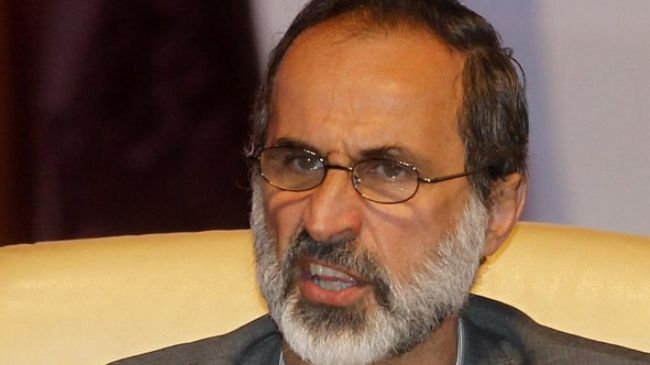Moaz al-Khatib Submits New Resignation

 Syrian National Coalition Chief Moaz al-Khatib confirmed his resignation.
Syrian National Coalition Chief Moaz al-Khatib confirmed his resignation.
The group will make a decision whether to accept his resignation, AFP reported.
Previously in March he announced that he plans to resign, but he was called on by officials to reverse his decision. Later it was clarified that he will remain in his post until May.
Khatib has led the western-backed Syrian opposition coalition since its creation last November. The SNC aims to replace the current Bashar Assad government and supports the Free Syrian Army.
Syria has been experiencing unrest since March 2011 with organized attacks by well-armed gangs against Syrian police forces and border guards being reported across the country.
The US and its western and regional allies have long sought to topple Assad and his ruling system. Media reports said that the Syrian rebels and terrorist groups have received significantly more and better weapons in recent weeks, a crime paid for by the Persian Gulf Arab states and coordinated by the United States.
The US daily, Washington Post, reported in May that the Syrian rebels and terrorist groups battling the President Bashar al-Assad’s government have received significantly more and better weapons in recent weeks, a crime paid for by the Persian Gulf Arab states and coordinated by the United States.
The newspaper, quoting opposition activists and US and foreign officials, reported that Obama administration officials emphasized the administration has expanded contacts with opposition military forces to provide the Persian Gulf nations with assessments of rebel credibility and command-and-control infrastructure.
Opposition activists who several months ago said the rebels were running out of ammunition said in May that the flow of weapons – most bought on the black market in neighboring countries or from elements of the Syrian military in the past – has significantly increased after a decision by Saudi Arabia, Qatar and other Persian Gulf states to provide millions of dollars in funding each month.







